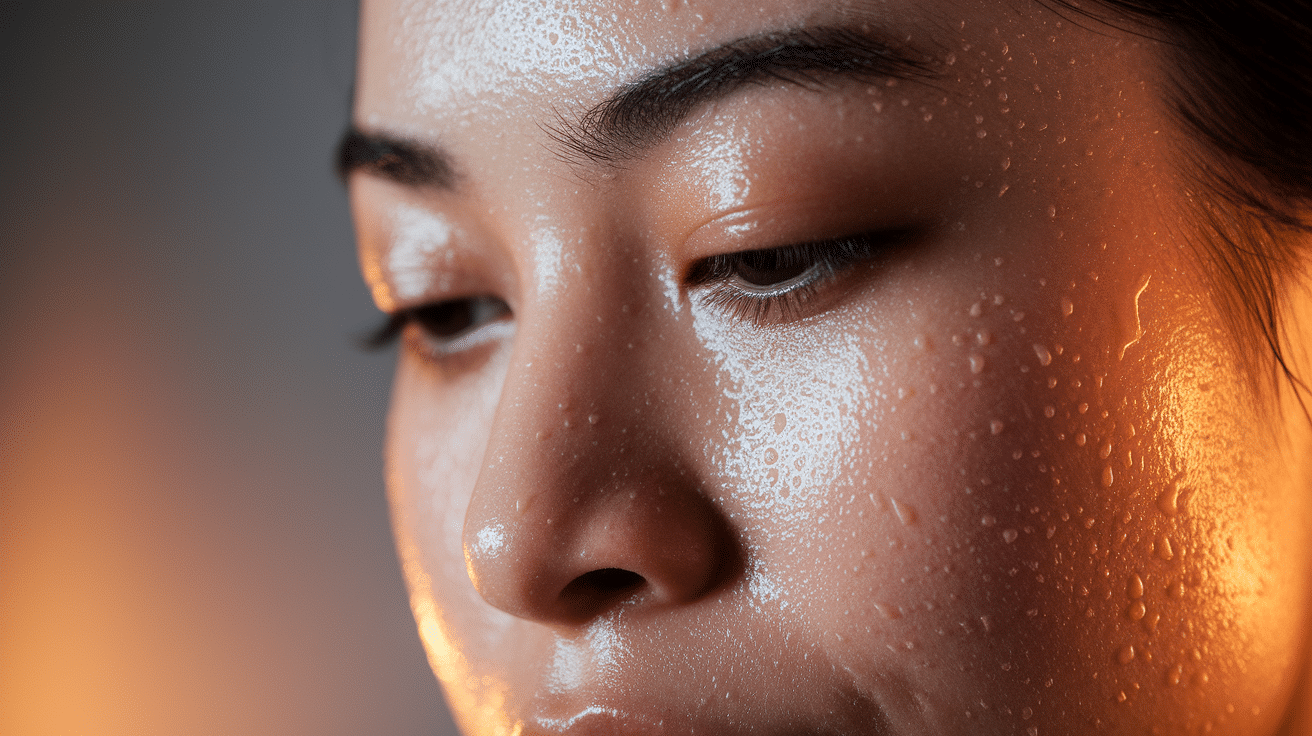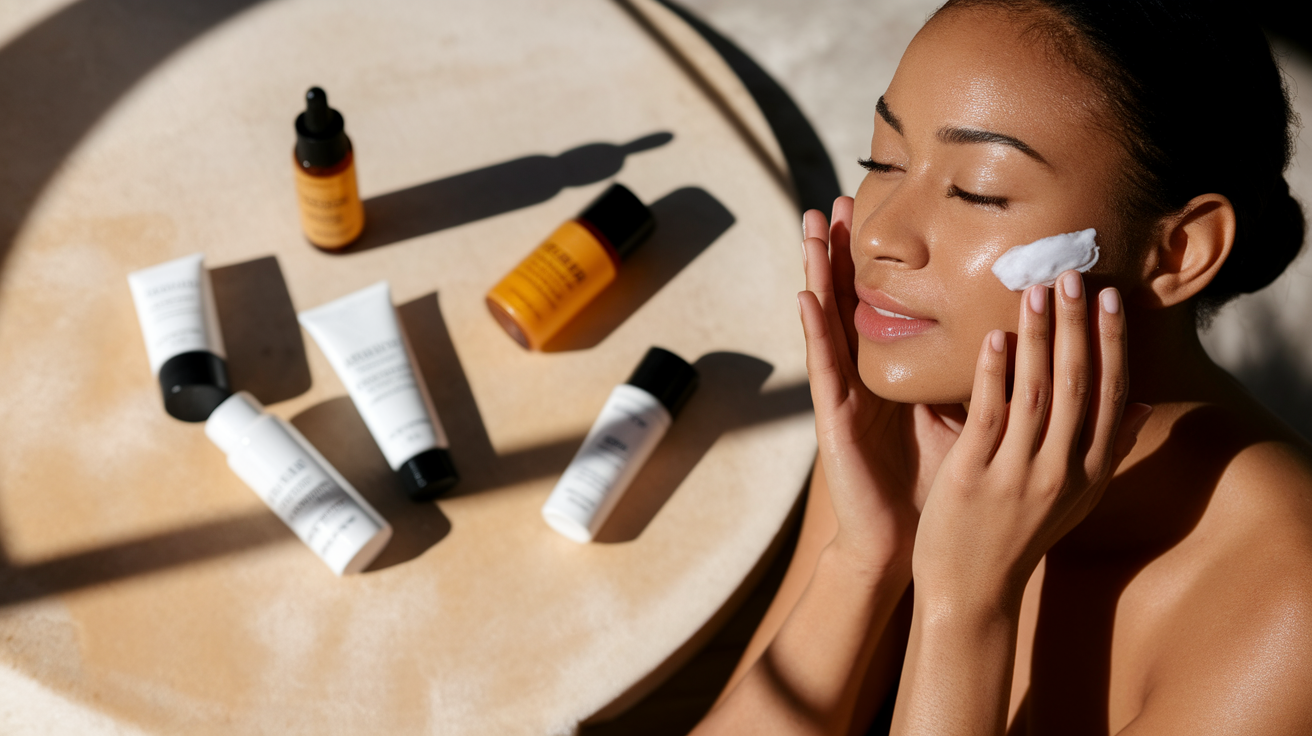Ever wondered if washing your face and applying moisturizer regularly is really enough?
Well, not really because taking care of your skin goes way beyond that.
The skin plays a major role in the human body. It not only protects the body, but also keeps it healthy, and does much more than you often realize.
Still, many people overlook some simple habits that can make a significant difference.
So, let’s understand in detail how some basics can help your skin stay happy, clear, and glowing.
1. Your Skin is the Largest Organ in Your Body
The skin serves as a vital shield, protecting the body while regulating essential functions that contribute to overall health.
- Fact: Your skin covers 20 square feet (around 1.5–2 square meters) and accounts for about 15% of your body weight, making it your largest organ.
- Tip: Keep your skin healthy by using sunscreen, moisturizing regularly, and avoiding harsh chemicals that can strip its natural oils.
2. Your Skin has Its Microbiome
Tiny organisms live on your skin that help keep it safe and balanced by fighting harmful bacteria.
- Fact: Billions of microbes work together to protect your skin and support its natural defenses.
- Tip: Use gentle products to support your skin’s microbiome, avoiding harsh chemicals that can disrupt its natural balance.
3. Skin Regenerates Every 28 Days
Skin is always regenerating, shedding old cells and replacing them with fresh, healthier ones every few weeks.
- Fact: Skin cells regenerate every 28 days, with the outer layer shedding to make room for new, healthier cells.
- Tip: Exfoliate gently to help speed up this process, revealing smoother, fresher skin without irritating or damaging it.
4. Water Keeps Your Skin Hydrated
Water plays a critical role in maintaining the skin’s elasticity, smoothness, and overall radiance.
- Fact: Water helps maintain skin hydration, ensuring it stays smooth, elastic, and free of dry patches or wrinkles.
- Tip: Drink at least 8 glasses of water daily and use hydrating skincare products to keep your skin moisturized.
5. The Skin Produces Vitamin D
When exposed to sunlight, your skin produces vitamin D, which helps your body stay healthy.
- Fact: Sunlight helps your skin make vitamin D, which keeps your bones strong and supports your immune system.
- Tip: Get 10-15 minutes of sunlight daily to boost vitamin D production, but always protect your skin from harmful UV rays.
6. Your Skin has a Unique pH Level
Maintaining the skin’s natural pH level helps prevent irritation and guards against harmful microbes.
- Fact: Your skin’s pH level is slightly acidic, usually between 4.5 and 5.5, which protects it from harmful microbes.
- Tip: Use pH-balanced skincare products to maintain your skin’s natural barrier and prevent irritation or breakouts.
7. Sunscreen is Your Best Anti-Aging Friend
Sunscreen shields your skin from harmful sun rays, which helps to prevent early aging and damage.
- Fact: It blocks UV rays that can cause wrinkles, dark spots, and raise the risk of skin cancer.
- Tip: Apply sunscreen daily, even on cloudy days, and choose SPF 30 or higher for optimal protection.
8. Nighttime Skincare is Crucial
While you sleep, your skin repairs itself, producing new cells and repairing damage caused by environmental factors.
- Fact: At night, your skin works to heal and refresh, keeping it healthy and strong.
- Tip: Cleanse your skin, apply serums, and moisturize before bed to support your skin’s natural repair cycle.
9. Makeup can Block Pores
Cosmetic products may accumulate debris and oil that contribute to skin congestion if not thoroughly cleansed.
- Fact: Residual makeup can clog pores, leading to blackheads, acne, and overall skin imbalance.
- Tip: Always remove makeup thoroughly before bed to prevent breakouts and maintain clear, healthy skin.
10. Stress Affects Your Skin
Stress hormones disrupt skin balance, leading to breakouts, irritation, and long-term sensitivity.
- Fact: Increased cortisol levels from stress can contribute to acne, eczema, and overall skin instability.
- Tip: Practice stress-reducing activities, such as yoga or meditation, to keep your skin calm and balanced.
11. Your Diet Impacts Your Skin
The foods you eat play a crucial role in maintaining clear, hydrated, and radiant skin.
- Fact: A diet rich in antioxidants and healthy fats supports glowing skin, while too much sugar can cause breakouts.
- Tip: Include foods like berries, nuts, and leafy greens in your diet to nourish your skin from the inside out.
12. Cold Water won’t Close Your Pores
Many believe cold water can shrink pores, but the reality behind this skincare myth tells a different story.
- Fact: Pores don’t have muscles to open or close, so cold water doesn’t shrink them.
- Tip: Use a gentle cleanser and toner to maintain clean, unclogged pores, as cold water won’t help with that.
13. Exfoliation can Boost Cell Turnover
Exfoliating clears away old skin cells, allowing new ones to grow faster and achieve a fresh, smooth appearance.
- Fact: Removing dead skin helps your skin renew, making it softer and brighter over time.
- Tip: Gently exfoliate your skin once or twice a week to prevent irritation and enhance texture and tone.

14. Over-washing can Dry Out Your Skin
Excessive washing strips away vital oils, leaving the skin exposed to dryness and irritation. Moderation is the key.
- Fact: Cleaning your face too frequently can strip away your skin’s natural oils, leading to dryness and disrupting its balance.
- Tip: Wash your face twice daily with a gentle cleanser, and avoid harsh products that can damage your skin’s barrier.
15. Your Skin is Constantly Sweating
Sweat helps your body stay calm and balanced, even when you’re not aware of it.
- Fact: Your skin is always sweating slightly to maintain your body temperature and prevent overheating.
- Tip: Stay hydrated and keep your skin clean to prevent clogged pores and skin issues caused by sweat buildup.
16. Your Skin Needs Sleep
Sleeping well helps your skin heal, making it look fresher and reducing signs of aging and stress.
- Fact: While you sleep, your skin works to renew itself, keeping it healthy and youthful.
- Tip: Ensure you get 7-8 hours of sleep to support your skin’s natural rejuvenation process.
17. Pollution Takes a Toll on Your Skin
Pollution can cause the skin to look older and less radiant, so protecting it from harmful pollutants is crucial for long-term health.
- Fact: It can cause free radical damage, leading to wrinkles, fine lines, and dull skin.
- Tip: Use antioxidant-rich products and cleanse your face thoroughly to remove pollutants and protect your skin from damage.
18. Vitamin C Helps Brighten Skin
Vitamin C enhances skin glow and helps fade dark spots, giving your complexion a fresh and even appearance.
- Fact: This powerful nutrient helps reduce dark spots by stopping extra pigment from forming in the skin.
- Tip: Add a Vitamin C serum into your routine to increase radiance and protect against environmental damage.
19. Your Skin’s Thickness Varies
Different areas have unique thickness levels, impacting sensitivity and how they react to skincare treatments.
- Fact: Skin is thinnest on your eyelids and thickest on your palms and soles, which affects how your skin responds to care.
- Tip: Use gentle products on sensitive areas, such as your eyes, and stronger formulations on thicker skin, like your feet.
20. Skincare Products Have a Shelf Life
Beauty products don’t last forever, and using them beyond their intended shelf life may lead to irritation or reduced effectiveness.
- Fact: Expired skincare products may lose their potency, and some can cause skin reactions due to ingredient breakdown.
- Tip: Always check expiration dates, store products correctly, and replace them when they expire to maintain optimal skincare results.
21. Facial Hair Can Affect Skin Health
Keeping facial hair clean is essential for preventing buildup that can affect the skin beneath. Regular care makes a difference.
- Fact: Oil, dirt, and bacteria can accumulate in facial hair, increasing the risk of clogged pores and irritation.
- Tip: Shave or trim regularly and cleanse your face to keep both your skin and facial hair healthy.
22. A Clean Pillowcase Can Make a Difference
A clean pillowcase plays a significant role in maintaining clear, healthy skin by preventing bacteria buildup.
- Fact: Pillowcases collect oil, sweat, and bacteria from your skin and hair, which can transfer to your face while you sleep.
- Tip: Change and wash your pillowcase every few days to prevent breakouts and maintain clearer skin.
23. Your Skin’s Needs Change With Age
As you age, your skin’s needs evolve, requiring tailored care to maintain its health and youthful appearance.
- Fact: As we age, our skin loses collagen and elasticity, resulting in wrinkles, dryness, and a dull complexion.
- Tip: Adjust your skincare routine to target specific concerns at each age, incorporating anti-aging products and ensuring adequate hydration for lasting results.
24. Caffeine can Dry Out Your Skin
Consuming excessive caffeine can lead to dehydration, which in turn affects the skin’s texture and overall appearance.
- Fact: Caffeine can act as a diuretic, causing dehydration that can make your skin look dry or dull.
- Tip: Balance your caffeine intake with plenty of water to keep your skin hydrated and radiant.
25. Your Skin Needs to Be Treated Well
Overloading the skin with too many products may disrupt its natural barrier and cause unnecessary irritation.
- Fact: Overusing products can overwhelm your skin, leading to irritation or an imbalanced complexion.
- Tip: Stick to a basic skincare routine with gentle products and allow your skin time to recover naturally.
Conclusion
Always remember, taking care of the skin doesn’t have to be complicated. By understanding these facts, adjusting your daily habits, and maintaining a healthy lifestyle, you can achieve glowing skin.
So, here are some key takeaways to remember:
- Hydrate skin by drinking plenty of water and using moisturizing products.
- Always remove makeup thoroughly before bed to avoid clogged pores.
- Use sunscreen daily to protect your skin from harmful UV rays.
- Regularly exfoliate, but avoid overexfoliating or using harsh scrubs.
- Stick to a balanced skincare routine without overloading the skin with products.
What are you waiting for? Get your glowing skin now just by taking care of these tips regularly!















